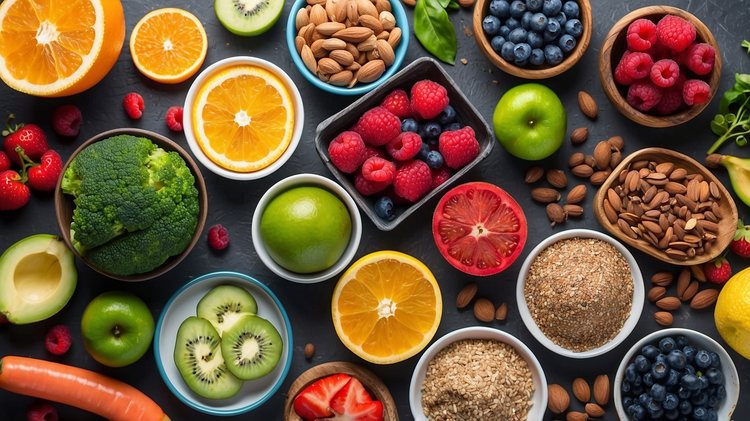The Intersection of Mood and Nutrition: Unfolding the Relationship
Nutrition is the cornerstone of our health, shaping our physical well-being, energy levels, and resilience against diseases. However, the profound impact of nutrition extends beyond the physical realm and delves into the psychological aspects of our existence—our mood, emotions, and mental health. Recent research has begun to unravel the intricate connection between what we consume and how we feel, bringing to light the concept of nutritional psychiatry. This burgeoning field is reshaping our understanding of mental health, presenting dietary shifts as potential allies in managing mood disorders and promoting overall emotional well-being.

From Ancient Wisdom to Modern Science: The Historical Context
The correlation between food and mood is not a novel concept. Ancient civilizations like the Greeks and Egyptians often associated specific foods with emotional states. Honey, for instance, was believed to bring joy and alleviate distress. In Ayurveda, an ancient Indian medicinal system, a balanced diet was crucial for maintaining emotional and mental equilibrium.
Fast forward to the 21st century, and these ancient concepts are being validated by modern science. The advent of nutritional psychiatry has seen numerous studies affirming the role of diet in mental health. For instance, research indicates that a Mediterranean diet—rich in fruits, vegetables, whole grains, and lean proteins—can reduce the risk of depression.
The Gut-Brain Axis: Decoding the Connection
So, how does what we eat affect how we feel? The answer lies in the gut-brain axis, a bidirectional communication network between our digestive system and the brain. Our gut, often referred to as the ‘second brain,’ is home to billions of microbes that influence the production of neurotransmitters—chemicals that relay messages between nerve cells, playing a crucial role in regulating our mood.
Consuming nutrient-rich, diverse foods promotes a healthy gut microbiome, thereby positively impacting our mental health. Conversely, a diet high in processed foods, sugar, and unhealthy fats can disrupt the gut balance, leading to inflammation and potentially contributing to mood disorders.
The Impact of Nutritional Psychiatry: Changing Tides in Mental Health Care
The recognition of diet’s role in mental health has far-reaching implications. Nutritional psychiatry underscores the potential of dietary interventions in managing conditions like depression and anxiety, alongside conventional treatments.
Several leading health organizations, including the American Psychiatric Association, now acknowledge nutrition as an essential part of mental health care. Moreover, many hospitals and clinics have started incorporating nutrition counseling into their mental health services, marking a significant shift in healthcare approaches.
As awareness grows, so does the public reception. People are increasingly recognizing the emotional benefits of a healthy diet, fostering a greater interest in mindful eating and nutrition education. This trend reflects in the rising demand for nutritionists specializing in mental health.
The Caveats and the Way Forward
While the potential of dietary changes in boosting mood is promising, it’s essential to approach this field with caution. Nutrition is just one piece of the complex mental health puzzle. A balanced diet can complement, but not replace, traditional treatments like medication and psychotherapy for mental health disorders.
Moreover, everyone’s nutritional needs and responses to food are unique, calling for personalized dietary strategies. It’s important to consult healthcare professionals before making significant dietary changes, especially for those with underlying health conditions.
In conclusion, the intersection of mood and nutrition opens a new frontier in mental health care. By harnessing the power of a balanced diet, we can empower individuals with another tool to manage their emotional well-being. As we continue to explore this fascinating relationship, it’s clear that the journey to mental health can, indeed, begin on our plates.




